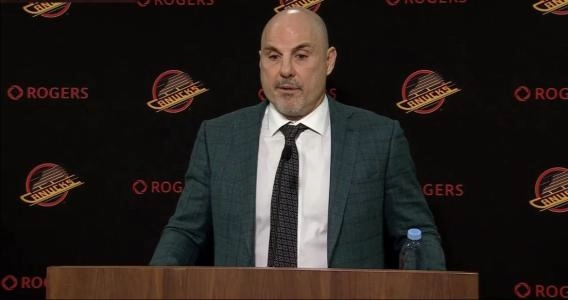The Florida Panthers, despite basking in the glory of back-to-back Stanley Cup championships, find themselves facing serious decisions during the 2025 NHL offseason—particularly regarding the health of star forward Matthew Tkachuk and its potential implications on the team’s finances.
Champions Under Pressure
The Panthers clinched their second consecutive Stanley Cup by defeating the Edmonton Oilers in a thrilling six-game series. Matthew Tkachuk was a pivotal piece of that success, contributing significantly on the scoreboard despite battling through various injuries. He tallied three goals and seven assists in the final series, further cementing his role as one of Florida’s most essential players.
However, celebrating another championship doesn’t mean the front office can rest easy. The offseason has brought forward challenges that go beyond managing draft picks and free agent signings. The team’s biggest issue right now is the salary cap. According to Puck Pedia, the Panthers are $3.75 million over the NHL’s salary cap, and they must find a way to become cap-compliant before the start of the next season.
Tkachuk’s Cap Hit and Injury Status
At the heart of Florida’s salary cap dilemma is Matthew Tkachuk’s hefty $9.5 million cap hit. Only team captain Aleksander Barkov commands a higher average annual value on the payroll at $10 million. Sam Reinhart and Sam Bennett follow closely behind, earning $8.625 million and $8 million per year, respectively. With such star-studded contracts filling the roster, the front office has little wiggle room to maneuver.
One potential short-term solution being floated around involves placing Tkachuk on Long-Term Injured Reserve (LTIR). LTIR is a mechanism in the NHL that allows teams to exceed the salary cap temporarily if a player is expected to miss a significant amount of time due to injury. Sportsnet’s Nick Kypreos suggested that if Tkachuk’s recovery stretches into the beginning of the 2025–26 season, the Panthers could use LTIR to gain immediate cap relief. This would give the team the flexibility to start the season while staying under the salary limit.
But this option isn’t as straightforward or risk-free as it may sound. LTIR relief is only viable if Tkachuk is genuinely unable to play, and any attempt to manipulate the system without legitimate medical justification could lead to scrutiny from the league office. Therefore, the Panthers need to tread carefully and base their decision entirely on Tkachuk’s health evaluation.
A Season of Grit and Injury
Matthew Tkachuk’s resilience throughout the 2024–25 season was commendable. He first sustained a groin injury while representing Team USA in the 4 Nations Face-Off tournament, a problem that lingered throughout the regular season. Despite that, Tkachuk never showed signs of slowing down when it mattered most. He powered through the pain during the Stanley Cup Playoffs, proving his toughness and commitment to the team.
His ability to perform at a high level under physical duress was a key reason the Panthers repeated as champions. However, the offseason has revealed that those injuries might be more serious than initially thought. With little concrete detail currently available on his recovery timeline, speculation is growing that Tkachuk may not be fully ready for the start of the new season. If that turns out to be the case, it could validate the LTIR option, giving the Panthers some temporary financial breathing room.
Strategic Considerations and Roster Moves
Should Florida go down the LTIR route, the move would provide more than just temporary salary cap relief—it would offer time. That breathing space could allow the front office to explore other avenues such as trades or contract buyouts to balance the books more sustainably for the rest of the season. It’s a tight situation, made even more complicated by the fact that many of the team’s key contributors are locked into lucrative deals.
For example, Barkov’s $10 million cap hit reflects his value as team captain and two-way leader. Reinhart and Bennett are essential offensive cogs, but their salaries further tighten Florida’s cap flexibility. Thus, parting ways with a depth player or making a creative trade to offload salary may also be under consideration.
The Panthers must also factor in their long-term planning. With players like Anton Lundell and Spencer Knight approaching new contract negotiations, keeping future salary slots open is a necessity. Using LTIR for Tkachuk might delay the problem, but it won’t solve the deeper financial puzzle.
The Bigger Picture
Florida’s current dilemma is a textbook example of how success in the NHL comes with its own set of complications. Winning championships often results in rising player values and tighter salary constraints. As a result, championship teams frequently face tough decisions in the immediate aftermath of victory.
The Panthers’ front office is now tasked with navigating this tricky balance—managing their payroll while remaining competitive and respectful of the league’s financial rules. They also have to weigh Tkachuk’s long-term health and effectiveness. Rushing him back too soon could jeopardize both the player’s future and the team’s aspirations for a three-peat.
There’s also a psychological factor. Tkachuk has emerged not just as a top performer but also as a team leader and identity-setter. Using LTIR to keep him off the ice might raise questions inside the locker room, even if it makes sense from a business standpoint. Players and fans alike may not be thrilled about a prolonged absence, even if it’s done in the name of cap compliance.
Final Thoughts
In the end, the Panthers are operating in a pressure cooker of financial limitations, championship expectations, and medical uncertainties. Matthew Tkachuk is both a blessing and a challenge—a cornerstone talent with a massive contract and injury baggage. As the team continues to monitor his health, the possibility of using LTIR remains a plausible and strategic option.
Florida’s offseason decisions will not only impact their ability to compete in the short term but also define the legacy of this current championship core. A smart and patient approach could set the stage for another Stanley Cup run, while a misstep might unravel the delicate balance that has made them elite.
Until then, all eyes are on Tkachuk’s status—and what it will ultimately mean for a Panthers team chasing greatness amidst adversity.



